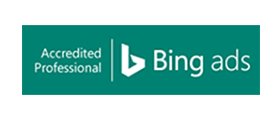If you have content on your site that is separated over multiple pages then there is some simple strategies you can take to ensure that you provide the best experience to your users and that you have your pages as best optimised as possible.
Examples of multi-page content
The two most obvious examples are long articles split over multiple pages for readability and product category pages on e-commerce sites, however, any content that is split off multiple pages is paginated content.
Problems with pagination & search
Having several paginated pages for a product category means we have several, mostly duplicate pages which could be competing for keyword relevance (and diminishing the chance of either to rank), splitting link popularity between different, competing pages and in the worst case scenario could be a poor quality signal due to a low degree of unique page content. This is less problematic for an article as the pages will have unique content but the page titles and other important elements may be similar so you may still be weakening your chance of ranking this content and providing a poor experience to search users who land on page 3 of your article or view a tiny selection of your categorised products (and click away to the competition).
Options
There are various options and they depend on your situation and the presence of a ‘view all’ type page:
1. rel=”canonical”
The canonical tag allows us to indicate the primary version of this content and provides a signal to Google to prioritise the indicated page in the search results.
2. rel=”next” & rel=”prev”
An alternative approach is to use the rel=”next” & rel=”prev” tags to group the content and allow Google to rank to the first page in a group for relevant searches.
3. do nothing
Google are keen to let us know that they will try and determine the canonical page for their search results but experience tells us they don’t try hard enough in many cases so you are best to handle this yourself.
What to do
If you have a single ‘view all’ page with all the content on, then in most cases, a rel=”canonical” pointing to this page from the component pages is the best bet. One instance where this may not be the best approach would be an e-commerce category page with 100 products that would be difficult to navigate and possibly slow loading and then the rel=”next” & rel=”prev” tags will give Google the information it needs to show the best page for your user’s needs. If you don’t have a view all page then you can use rel=”canonical” to point to the first page of the group.
One instance where rel=”canonical” does not work as we would like is where you have an article, split over multiple pages, then by incorrectly using rel=”canonical” to point to the first page you will be preventing the content from pages 2 and 3 from being indexed and subsequently, will never rank for the searches that are relevant to the content contained on those pages. In this instance, rel=”next” & rel=”prev” allows us to still overcome all potential problems whilst still indexing the content from subsequent pages in the group.
One page to rule them all
Google wants us to use a view all page if possible as their research indicates that is what users want so if possible (and suitable), create a view all page and use rel=”canonical” to indicate this is the primary page for this content. I prefer not to swim upstream if possible and if we can give big G what it wants then we remove any possible barriers to indexation and ranking.
Using rel=”canonical” or rel=”next” + rel=”prev” tags ideally with a ‘view all’ page helps us indicate to Google which page we would like to show up in search results from a group of related pages. Additionally, Google can consolidate any value from inbound links spread amongst the various pages to your primary result page allowing you to focus all your ranking power into the desired page be it the first of the group or the ‘view all’.
Questions?
If you have any SEO or Internet Marketing questions or would like someone to cast an eye over your paginated content to suggest the best course of action then drop a comment below or get me on Twitter. If you know anyone else who could benefit from this or you just want to do your good deed for the day then please share this article with the icons below the comment box.






